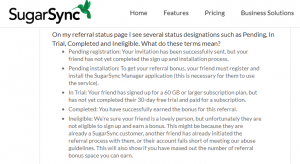
We are living in the social age; where we all have the power and the potential to have our opinions heard by millions. With every social post you distribute, you’re actively impacting your image and contributing to your social print.
There are thousands of articles online promoting what should be included in your social media strategy, but what about the methods you shouldn’t be doing? Surprisingly, the methods which are the most common are usually the most feeble and harmful.
If You Don’t Share This Post in the Next Three Seconds…
The goal of your social media strategy is to deliver the right content, to the right people, at the right time. By doing so, you’re positively generating the right kind of brand awareness. However, many businesses are trying to gain a competitive advantage on social media and search engine ranking through the bad practice of like-bait sharing.
Unfortunately, we have all stumbled across like-bait. Like-bait, a term coined by Facebook, is the practice of using controversial headlines and imagery to stir up some social media interest. The most frequent use of like-bait is when a person requests likes, shares and comments in order to increase their organic post reach. Like-bait, like click-bait, very rarely provides the audience with any new or insightful information.
As like-bait typically receives high engagement levels, many business feel compelled to participate in such sinful social media practices. But businesses who follow this practice are not receiving any proper engagement as their new following is engaging with the nature of the post and not that brand per say. As a result, the temporary increase of likes and shares are simply empty numbers.
The best example of like-bait is “like, share, comment or ignore” posts which aimlessly float around Facebook. As like-bait requests for an action to be taken, more people are reached through the annoying behaviours of their online friends.
Facebook Cleans Up News Feed Spam
According to a study conducted by Facebook in 2014, people rate like-bait as 15 percent less applicable as other stories with comparable number of likes, comments and shares. Over time, these people recognized that link-bait stories lead to a less enjoyable social media experience.
Facebook has since introduced a change in their algorithm which was taken into effect last April. In an effort to rid the content people don’t really care about, the algorithm change determines which content to show on each news feed. This Facebook algorithm update is intended to funnel the business pages which frequently post explicitly asking for likes, comments and shares. Consequently, the organic reach of the typical post has dropped significantly in the past year, hurting many businesses’ marketing strategies.
This doesn’t mean that your business shouldn’t push for genuine engagement. The Facebook algorithm doesn’t impact pages that are genuinely trying to encourage discussion among their fan base.
With Facebook leading the way in purposeful content by underlining the importance in your social media campaign being relevant to your audience, it’s hard to understand why businesses continue to share like-bait.
Why Sharing Like-Bait is Damaging Your Credibility
Ruined Reputation
Do you want to be associated with zero-quality content? Do you want your business to be seen as annoying and irritating? If the answer is yes, continue sharing like-bait on social media.
Your company’s online reputation is fragile. The goodwill of your following is likely to be one of your most proud assets. Don’t endanger your following by participating in the practice of like-baiting to acquire fake engagement.
Disappointed Hype
It’s hard to continue the sort of engagement hype that like-bait provides. You will be hugely disappointed by the engagement levels following from the results seen after indulging your fake fans.
Lowering the quality of your social media posts to participate in the practice of like-bait will ruin your followings experience. Furthermore, if you follow this practice often, you’re in great risk of losing loyal followers.
There Are Better Alternatives to Sharing Like-Bait
Social media is a precious resource, and like-bait is a nasty phenomenon that infests social media these days. Your business should aim to maintain a positive reputation on social media by avoiding everything which resembles like-bait. Be legitimate with your social posts. Don’t repost third-party resources unless they provide relevant information to your audience.
In social media, it’s important that you give more than you receive. Customers expect the same service they would receive in person. Personalize your posts, make them relevant and make them engaging. After all, no one likes shuffling through spam in order to get to the information they require.
(284)
Report Post






